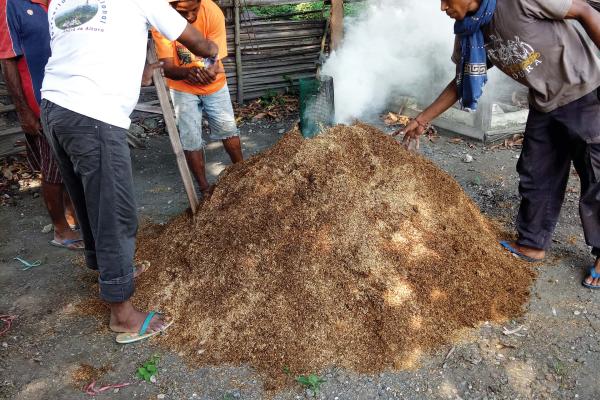Overview
This project aimed to explore the feasibility of biochar as a method for removing infected material from oil palm blocks to inform a business case for oil palm derived biochar production in Papua New Guinea.
Oil palm is a long-term perennial crop of great economic importance in South-East Asia and the Pacific, providing much needed income to both large plantations and smallholders. Unfortunately, basal stem rot, caused by the fungus 'Ganoderma boninense', poses an increasingly major threat to the oil palm industry.
The project aimed to establish whether it is technically feasible and economically sensible to support the sanitation of oil palm plantations infected by Ganoderma, through the removal of infected logs and wastes and their conversion to biochar in Papua New Guinea.
Project outcomes
- Removing all infected material from blocks.
- Mitigating climate change through carbon sequestration.
- Enhancing soil quality through improved cation exchange and water retention capacity.
- Enhancing beneficial soil micro-organisms.
- Creating new business opportunities, for example to create peat-like but sustainable, stable and carbon-sequestering high value media products from waste for use in intensive industries such as nursery and floriculture production.




